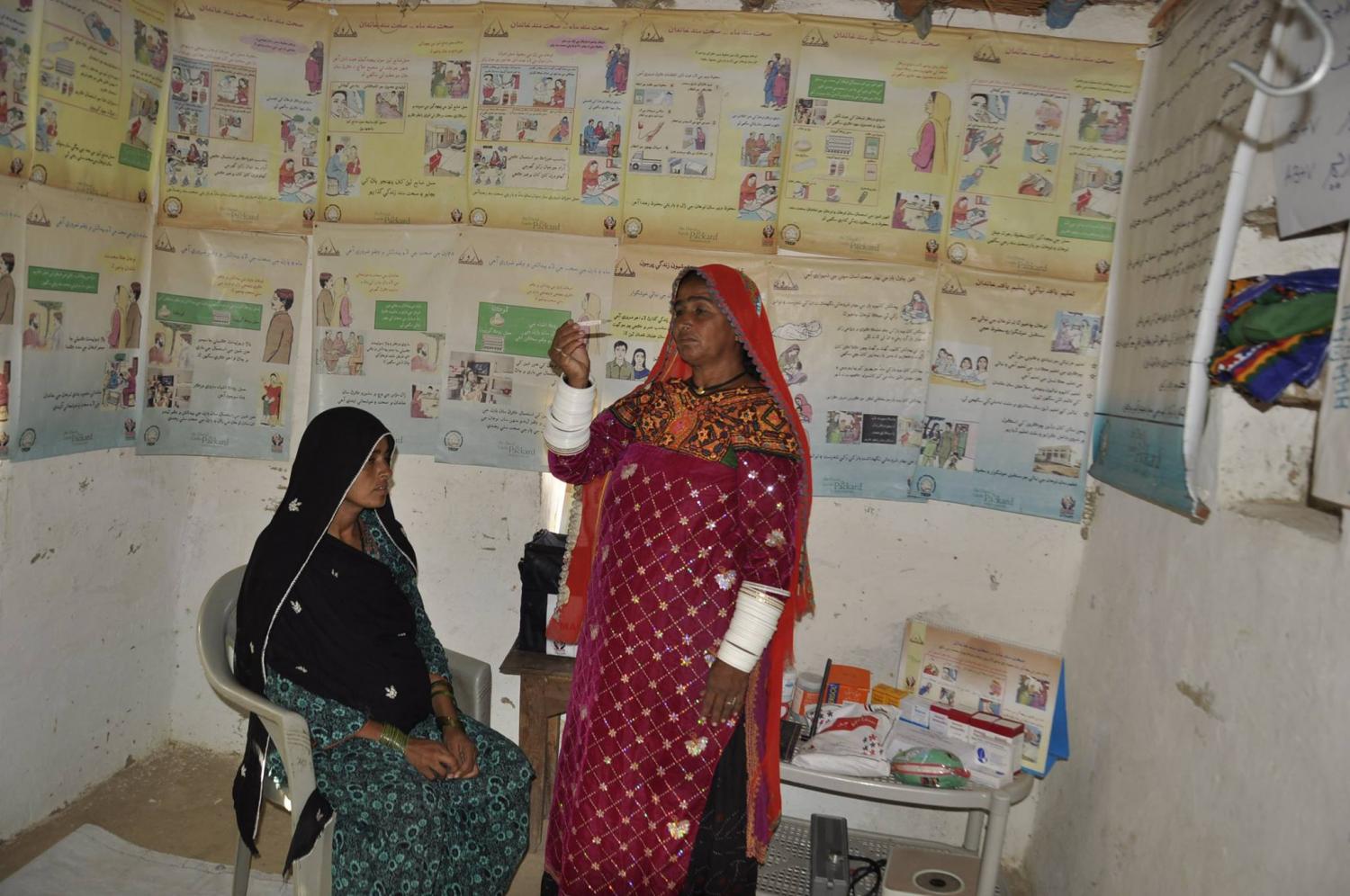
Plenty of data exist that show a strong correlation between the use of contraception and women’s improved health and economic opportunities. Nevertheless, despite a concerted effort to improve access in Pakistan, which has resulted in a lower birthrate, contraception is still a tough sell in much of the country.
Rural women in Pakistan are using contraception at a far lower rate than their counterparts in rural areas. The lack of access to contraception, and knowledge about reproductive health, together contributes to Pakistani women suffering from one of the world’s highest maternal mortality rates in the world. Depending on the source, Pakistan, while making some improvements over the past 50 years, still has a high birthrate, one approximately 50 percent higher than that of India’s. Poverty, obstinate religious hostility, and a dearth of information contribute to the difficulty many poor and rural women have when it comes to securing contraception.
In rural areas, however, door-to-door sales of contraception are one tactic helping to strengthen women’s reproductive rights in Pakistan. MARVI (Marginalized Area Reproductive Health Viable Initiative), one of many programs run by the NGO HANDS Pakistan, recruits women to work in remote rural areas where there is little or no access to public health care. Health workers that sign on with MARVI learn about the pros and cons of various contraceptives, are trained on how to address objections to birth control, and are then assigned to cover an area with an approximate population of 1,000 people. Think of these women as Pakistan’s version of Avon cosmetics or Hoover vacuum cleaner saleswomen driving the country’s quest to expand access to birth control.
MARVI’s sales and outreach model is based on Pakistan’s Lady Health Worker (LHW) program, which the government launched in 1994 in order to provide primary health care services in areas such as urban slums and rural districts. Such a program became crucial as doctors, and the means to fund them and staff clinics, were lacking. While the World Health Organization has lauded LHWs for improving health indicators in the areas in which they work, many Pakistanis have not been touched by the program because of funding and recruitment challenges. MARVI is one way to fill that gap and provide a necessary service, offered by someone in the community that women can trust. Women who have access to birth control can then be more productive as they help their family manage their farm or business, because a doctor’s visit can result in at a minimum a lost day of work.
Besides contraception, the women who work for MARVI provide additional health services and counseling. They offer antenatal and postnatal care for women; help treat ailments such as malaria, digestive disorders and common skin diseases; and monitor the development of children ages three and under. The women are trained on several forms of birth control, including the most popular ones in Pakistan, which are injectables, followed by pills and IUDs.
MARVI workers, who sell contraception and other health products at a price subsidized by the government, earn a stipend of around $30 a month. HANDS Pakistan estimates that keeping each of these women health workers on board costs the government approximately $1,400 a year — a highly cost-effective program considering the number of women these workers meet monthly. In turn, this social enterprise model engages more women in a given area, as each worker has the support of a local board of women who help her with prioritizing visits and evaluating the most pressing local women's health care needs.
Women have a long road ahead overall in Pakistan when it comes to economic and human rights. That ceiling above Pakistani women can hardly be described as glass: Social norms have made it more akin to impregnable steel. The World Economic Forum, for example, ranked Pakistan last in its most recent survey on the global gender pay gap — behind Syria and ahead of Yemen. But the efforts of women such as those in the MARVI program, however, are helping to crack that stubborn ceiling.
Image credit: HANDS Pakistan Facebook

Leon Kaye has written for 3p since 2010 and become executive editor in 2018. His previous work includes writing for the Guardian as well as other online and print publications. In addition, he's worked in sales executive roles within technology and financial research companies, as well as for a public relations firm, for which he consulted with one of the globe’s leading sustainability initiatives. Currently living in Central California, he’s traveled to 70-plus countries and has lived and worked in South Korea, the United Arab Emirates and Uruguay.
Leon’s an alum of Fresno State, the University of Maryland, Baltimore County and the University of Southern California's Marshall Business School. He enjoys traveling abroad as well as exploring California’s Central Coast and the Sierra Nevadas.














